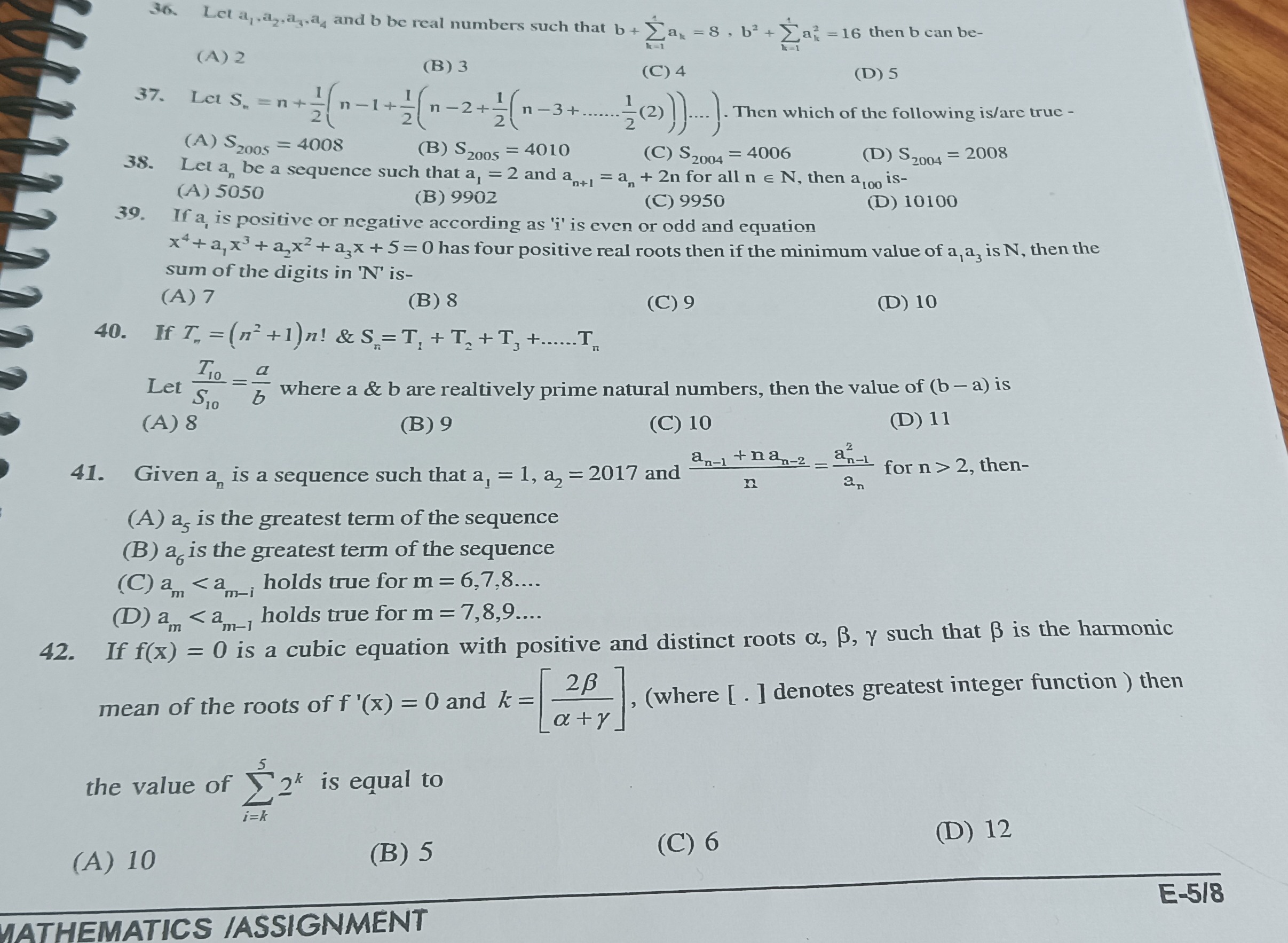Question
Question: Let $a_1, a_2, a_3, a_4$ and b be real numbers such that $b + \sum_{k=1}^{4} a_k = 8, b^2 + \sum_{k=...
Let a1,a2,a3,a4 and b be real numbers such that b+∑k=14ak=8,b2+∑k=14ak2=16 then b can be-

A
2
B
3
C
4
D
5
Answer
2 and 3
Explanation
Solution
Let the given equations be:
- b+∑k=14ak=8
- b2+∑k=14ak2=16
Let S1=∑k=14ak and S2=∑k=14ak2. From (1), S1=8−b. From (2), S2=16−b2.
For any real numbers a1,a2,a3,a4, the Cauchy-Schwarz inequality states that (∑k=1nxk)2≤n∑k=1nxk2. In this case, n=4, so S12≤4S2.
Substitute the expressions for S1 and S2: (8−b)2≤4(16−b2) 64−16b+b2≤64−4b2 b2−16b+64≤64−4b2 5b2−16b≤0 b(5b−16)≤0
This inequality holds when b is between the roots of b(5b−16)=0, which are b=0 and b=516. So, 0≤b≤516. Since 516=3.2, the possible values of b are in the interval [0,3.2].
